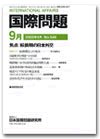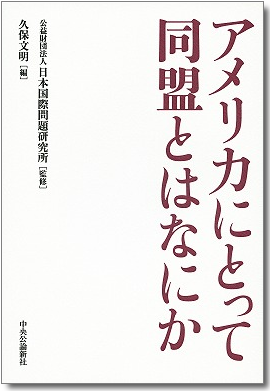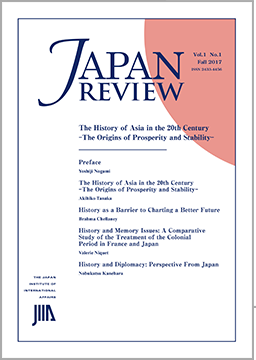Column/Report
|Top page|Print/Mobile page|Tweet
Strategic Annual Report 2019 : A New Security Strategy for Addressing Challenges in the Turbulent International Order
The post-World War II international order, which was formed under the leadership of the United States, was based on the premise that all nations, large and small, should abide by international law and spread liberal values such as individual freedom, democracy, human rights, the rule of law, the peaceful resolution of disputes, and free trade. In recent years, however, countries discontented with the existing international order, such as China and Russia, have been trying to create an environment favorable to authoritarian regimes by unilaterally changing or denying internationally established norms and systems. The Trump administration, under the banner of “America First,” has chosen to strategically compete with China and Russia, viewing them as “revisionist states” that challenge the existing international order. At the same time, the Trump administration has placed greater priority on protecting its own interests rather than on maintaining the existing order, and has called for correcting trade imbalances and increasing burdens on its allies. In particular, the Trump administration’s policy of valuing the contributions of its allies from a financial perspective is a serious issue that could undermine the credibility of the Japan-US alliance.

(2019-12-02)
Topics
Membership
 Archive of high-quality scholary works translated from Japanese to English
Archive of high-quality scholary works translated from Japanese to English
A highlight of JIIA's recent activities and a summary of its organization.
Publication
Journal

Kokusai Mondai (International Affairs)
No.680 April 2019 "Protecting Human Rights via International Procedures"
Vol.2 No.4 Spring 2019
"Japan and the Post-World War II Liberal International Order"
Books
 What Do Alliances Mean to the US?
What Do Alliances Mean to the US?
(Fumiaki Kubo ed., 2013)






